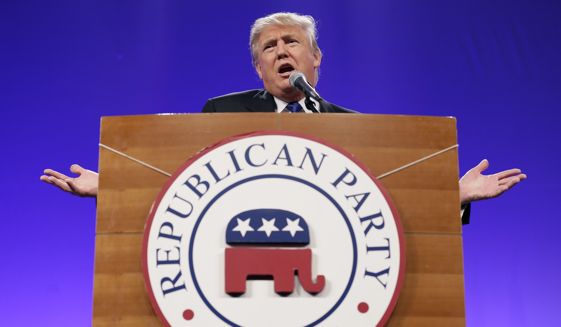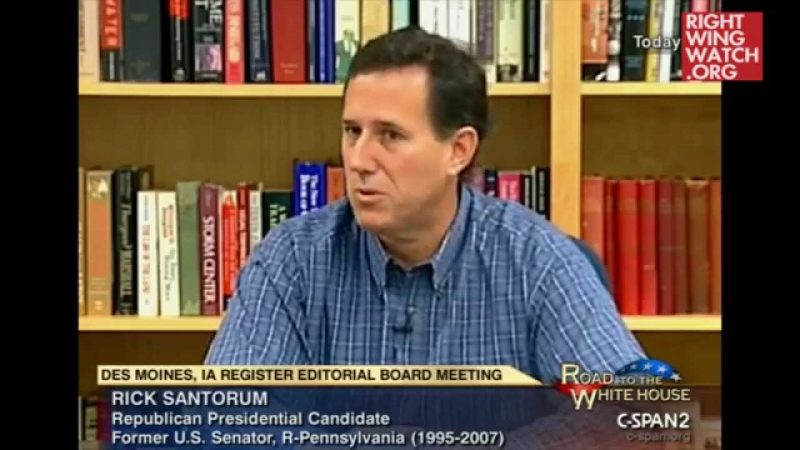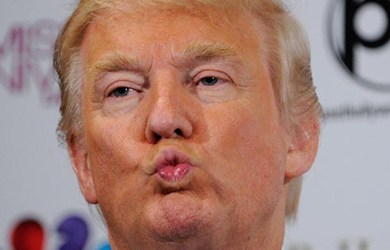Much has been written of the unseasonably early 2008 presidential campaign, but one unanticipated side effect is that the Conservative Political Action Conference agenda is larded with ambitious politicians hoping to surprise – or at least appease – what all of them have apparently decided is their best hope, the far-right base. No less than eight Republican contenders (if you count Newt Gingrich, who appears to be looking for the side entrance to the White House) are scheduled; the only major candidate missing is John McCain.
And so the activist crowd, compared to last year’s conference, is more enthused with people than with causes. Rep. Duncan Hunter of California, a relatively unknown candidate, managed to fill a good portion of the large hall first thing in the morning. By 10 this morning, Mike Huckabee had people standing in the back, and at noon, CPAC staff closed off the wing as Rudy Giuliani had filled it up. At that point, a line began forming for those who wanted to see Tom Tancredo, Sam Brownback, and Mitt Romney, and by the time Giuliani finished his hour-long speech, the hundreds in line stretched back to the exhibit hall in the next wing. Of course, that may not have reflected any popularity on the part of the candidates themselves so much as the crowd wanting to get their money’s worth at the three-day event.
Hunter, who struck a martial theme, received a mixed response for his ideas on trade, but garnered standing ovations for his tough talk on building a fence to halt immigration over the Mexican border, and for his promise that “As president of the United States, I will pardon” the two border agents convicted in a shooting incident. Another plank of his platform that drew approval was his policy on picking judges: “If any judicial candidate comes before me and can look at a sonogram … and not see valuable life, then I will not appoint him.” While most polls hardly register Hunter’s candidacy, a straw poll in South Carolina found him a close second to Giuliani, a result that could give some life to his campaign.
Following an interlude on global warming – in which Sen. James Inhofe (R-Oklahoma) repeated his now standard tirade involving the UN, Richard Cizik, and animal worship – former Arkansas Gov. Mike Huckabee came in, armed to the teeth with folksy charm, and took aim at competitors who he said were changing their positions with the “prevailing winds”: “Some folks here had so many road-to-Damascus experiences they’ve had more than a Syrian camel driver,” he cracked. He reiterated his opposition to abortion and same-sex marriage, repeating his crack about “Moses coming down” from “Brokeback Mountain,” and accusing opponents of a constitutional amendment to ban same-sex marriage of preferring to amend the Bible, which he called “the very text upon which that Constitution was based.” Huckabee’s surprise move was to counter fervent opposition from the Club for Growth by announcing that “I plan later today to deliver to Grover Norquist a signed pledge” against taxes.
Giuliani, speaking at noon, eschewed all talk of the social issues that alienate much of this crowd, preferring instead to play to his perceived strengths. He briefly mentioned taxes, crime, welfare, and education (speaking in favor of school vouchers), but the bulk of his hour-long address was on terrorism and the war in Iraq, evoking his role as mayor of New York on September 11, 2001. Announcing himself as part of the “Reagan revolution” in that, like Reagan, he was interested in being “a leader,” Giuliani promised he would be making a lot of “tough decisions.” That meant, he claimed, that he differed from Democrats, who he said wanted to “go on defense” in the war on terror by opposing “the Patriot Act and electronic surveillance and interrogation,” the things he said helped him bring down the Gambino crime family as a prosecutor. Mostly, though, he compared the “tough decisions” he would make as president to Reagan during the Cold War. “A little heavy on the Reagan,” muttered one audience member.







